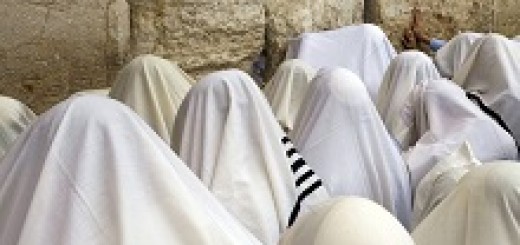By Avner Friedmann
According to Jewish tradition, a Jewish child begins to learn Torah with the book of Vayikra. This book describes the sacrifices brought in the Tabernacle (Mishkan) during the Jewish sojourn in the wilderness and later, in the Holy Temple in Jerusalem. The Midrash[1] asks, ‘Why out of the five books of Torah, do we start with Vayikra?”
On the surface of it, we can hardly find a more unsuitable place for a young mind to begin. Aren’t there more suitable subjects for a child to learn, such as how G-d created the world, the story of our patriarchs and matriarchs, the twelve tribes, the exile in Egypt, the many miracles that HaShem wrought for us, the redemption from Egypt and our birth as a nation with the giving of the Torah at Mount Sinai?
These subjects have the power to draw a child’s attention, stimulate his imagination and inspire him with a sense of pride in his heritage and and the traditions of HaShem’s chosen people. Why then begin with the intricate and seemingly boring minutiae of the Temple rites?
The Midrash answers that the mind of a child is still pure and untainted by sin. Children have not yet been jaded by the world around them. They haven’t been exposed to alien philosophies or to the decadence of society. At this point in their lives they are still imbued with simple faith, free of the dross of doubts, rationalizations and self interest. Because of the innocence of youth, their minds are like a “clean slate” open to absorbing the teachings of Torah.
The book of Vayikra opens with the words, “He (HaShem) called (Vayikra-ויקרא) to Moshe”. The letter Alef of the word Vayikra is smaller than the other letters. This hints that this is where the education of a small child begins.[2] From a very early age the book of Vayikra sets the child in the correct state of mind. It teaches him a reality that is higher than the rational and encourages him to devote his heart and soul to HaShem, as well as his mind.
As mentioned, Vayikra deals with sacrifices, on the merit of which the world exists[3]. The Talmud states that,[4] “Now that we no longer have sacrifices, the world continues to exist only in the merit of the breath of the mouths of schoolchildren (when they utter words of Torah)”. The Talmud asks, “What about the breath of adults who study Torah?” It answers that, “Torah from breath that contains a taint of sin is not comparable to the Torah on the breath of children, who are pure and untainted by sin”. Since, as a whole, the continuance of world is assured only through the merit of pure Torah, the world therefore relies on the pure and untainted Torah of schoolchildren.[5]
The Midrash states[6]: “Let the pure come and deal with the pure service. (When children utter the words of Vayikra) it is as if they themselves are offering these sacrifices”. The Midrash concludes, “Fortunate is the father who himself studies Torah and invests his money for the Torah study of his children”. May our children develop humility and a love of Torah and mitzvot, and may they emulate the love for Torah that King David expressed when he stated,[7] “Oh, how I love your Torah! It is my conversation all day long…from all my teachers I grew wise.”
[1] Tanchuma Tzav 14.
[2] Siftei Chachamim on Shmot 25:18.
[3] Avot 1:2.
[4] Shabbat 119b.
[5] Maharal from Prague as brought by Artscrol in Shabbat 119b.
[6] Tanchuma Tzav 14 and Rava 7:3.
[7] Tehilim 119:97 and 99.






















